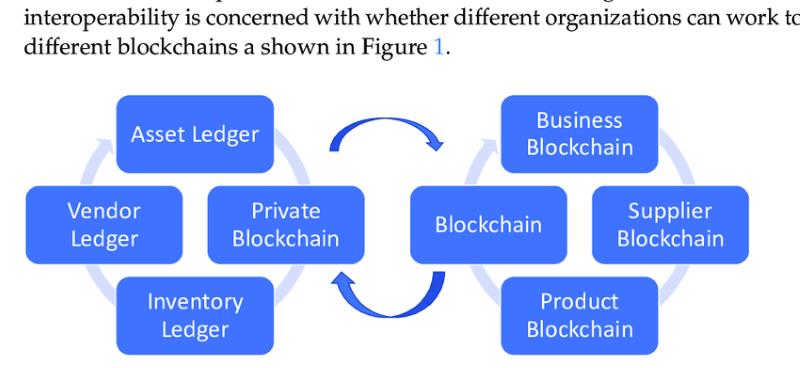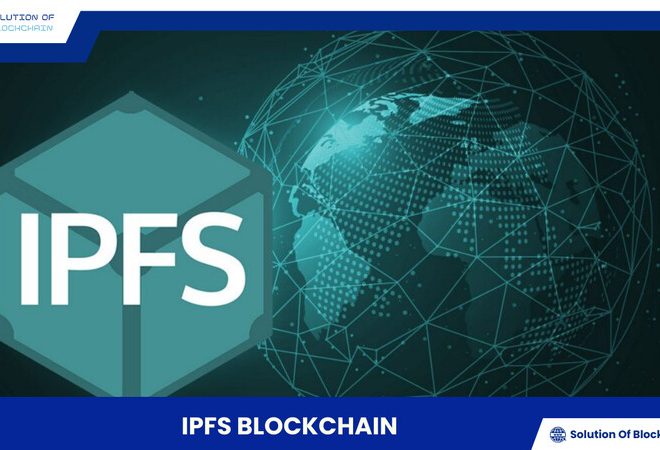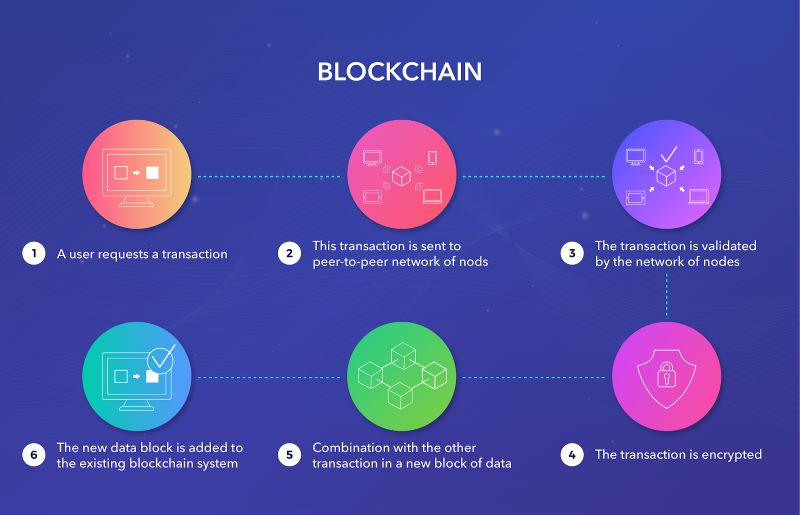
Top future of blockchain technology in 2024
Dive into the realm of innovation and discover the game-changing advancements reshaping industries worldwide. From hybrid blockchains to interoperability solutions, the possibilities are endless. Don’t miss out Top future of blockchain technology in 2024!
Top future of blockchain technology in 2024
Dominate the “Crypto” Space with stable coins
Enhanced Stability Amid Market Turbulence: Stable coins, true to their name, offer a reliable shield against currency volatility, presenting users with a steady investment avenue amidst market uncertainties. Additionally, they facilitate diversification within cryptocurrency portfolios.
Seamless Global Remittances: Stable coins streamline cross-border remittance processes, ensuring swift transactions at a fraction of traditional costs, while maintaining parity with fiat currencies.
Efficient Peer-to-Peer Transactions: Leveraging stable coins, users enjoy simplified peer-to-peer payments, with smart contract integration enabling automated and hassle-free transactions.
Market Stability Augmentation: By introducing stable coins into the cryptocurrency market, enhanced stability is anticipated, reducing market fluctuations and mitigating unnecessary risks and regulations.
Everyday Usability: Stable coins offer practical utility akin to fiat currencies, serving as a viable option for online transactions, thus promoting mainstream adoption within digital commerce.
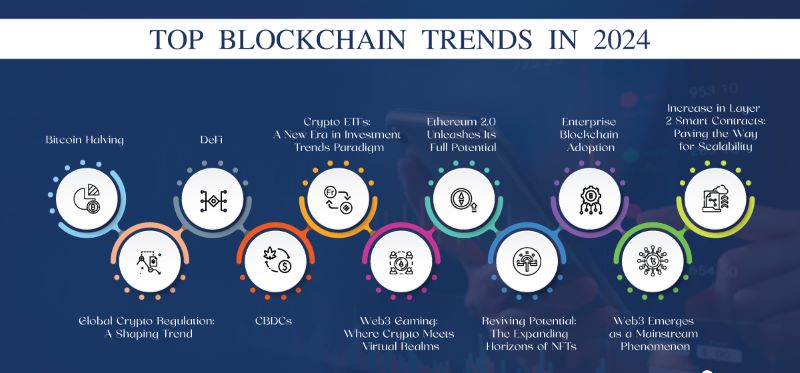
Challenges Ahead for Stable Coins in Blockchain’s Future
Volatility Risks: Despite their promise, crypto-backed or commodity-backed stable coins face susceptibility to market crashes, necessitating strategies to safeguard against asset devaluation.
Trust Dilemmas: Centralized structures of stable coins breed skepticism among users, challenging their widespread acceptance until proven efficacy is demonstrated.
Regulatory Hurdles: While resembling fiat currencies, stable coins confront regulatory obstacles, potentially undermining their original cryptocurrency ethos.
Centralization Concerns: Operating within centralized frameworks, stable coins deviate from the decentralized ethos of blockchain technology, prompting critical evaluation of their long-term viability.
An expected Rise of Federated Blockchain
Federated Blockchain emerges as a prominent trend in the blockchain realm, representing an enhanced iteration of the conventional blockchain model, tailored for diverse use cases
Experts foresee a spike in the adoption of federated blockchain owing to its provision of a customizable approach, particularly suitable for private blockchain applications. Essentially akin to private blockchains, federated counterparts boast additional functionalities.
Unlike traditional setups where a single entity oversees the blockchain nodes, federated blockchains empower multiple authorities to govern pre-selected nodes. This selected consortium validates transactions, ensuring seamless processing.
Key Aspects of Federated Blockchain’s Future Applications:
- Operates under a multi-authority system, deviating from the single-node paradigm.
- Authority nodes, curated from diverse organizations, collectively manage and validate blockchain transactions.
- Restricted network access is granted solely to the authorized consortium.
- Noteworthy Instances of Federated Blockchain Implementation:
- Financial Services
- Supply Chain Management (SCM)
- Insurance Claims Processing
- Organizational Data Security
- Multi-party Collaborative Ventures
Blockchain to realize Environmental, Social, and Governance goals (ESG)
An emerging trend in blockchain technology, especially in and post-2021, is its utilization for advancing governance objectives. The integration of blockchain into ESG initiatives promises investors a glimpse into a future where ventures prioritize environmental sustainability, social responsibility, and ethical governance, aligning with broader sustainable development objectives.

Case studies showcasing blockchain’s role in ESG are already abundant. Context Labs, for instance, harnesses blockchain to track emissions data, contributing to improved air quality and reduced carbon footprint in large-scale operations.
Prominent blockchain companies like Settlement and Copperwire are pioneering similar applications. They focus on leveraging blockchain to manage organic and biodegradable materials such as wool and latex, exemplifying the potential for sustainable practices within blockchain applications.
Blockchain is transforming Social Networking
Social networking has seamlessly woven itself into the fabric of our daily routines, with an estimated 3 billion users worldwide by the end of 2021, according to Statista. However, the landscape is not without its challenges, including scandals, privacy breaches, and content relevance issues.
The integration of blockchain technology into social media heralds a transformative solution to these pressing concerns. By leveraging blockchain, social media platforms can address issues of data control, privacy violations, and content relevance, marking a pivotal shift in the industry’s trajectory.

With blockchain implementation, data published on social media becomes immutable and untraceable, even post-deletion, ensuring enhanced privacy and security for users. Ownership of data is securely maintained, empowering users with control over their digital footprint. Additionally, blockchain decentralizes content relevance, placing the power in the hands of content creators rather than platform owners, fostering a sense of empowerment and security among users.
Interoperability Among Blockchain Networks
Interoperability in blockchain refers to the seamless exchange of data and information across multiple blockchain systems and networks, fostering transparency and accessibility. This functionality enables users to share and access data effortlessly between different blockchain platforms, such as transferring data from Ethereum to EOS.
Benefits of Blockchain Interoperability
Facilitates seamless transactions between diverse blockchain networks, simplifying user interactions.
Enables a wide array of functionalities, including cross-chain transactions, enhancing transaction flexibility.
Enhances multi-token transactions by supporting the development of multi-token wallet systems, streamlining asset management.
Leading Providers of Blockchain Interoperability
Blocknet: Pioneering decentralized exchange development, Blocknet focuses on facilitating interexchange communication to enable seamless data exchange.
Wanchain: Wanchain’s cross-chain capabilities aim to bridge the gap between consortium, private, and public blockchains, enhancing connectivity and interoperability across various blockchain ecosystems.
Streaming Content will be safer with Blockchain
Content streaming emerges as a prominent application of blockchain technology trends, poised for sustained popularity in the coming years. Leading movie streaming platforms such as Hulu and Netflix can leverage blockchain solutions to bolster the security and accessibility of user data.
Blockchain’s inherent properties, including interoperability and federated blockchains, offer versatile solutions for various streaming applications. Video, music, and social media streaming platforms can harness blockchain APIs to enable third-party access to read and write information directly onto the blockchain, enhancing transparency and data integrity across the ecosystem.
Blockchain in Real Estate
Blockchain technology has ushered in a new era for the real estate sector, transcending traditional barriers and democratizing access to the market. Among the latest blockchain trends, the overarching goal is to democratize real estate investment, allowing individuals from diverse backgrounds worldwide to participate in an industry previously reserved for local players with substantial capital.

Blockchain services are poised to streamline real estate transactions by eliminating intermediaries, fostering direct interaction between buyers and sellers. The inherent trustlessness of blockchain is bolstered by its robustness, ensuring the security and integrity of transactions.
Furthermore, blockchain paves the way for fractional ownership of properties, a concept previously confined to the realm of dreams. With its inherent capabilities and seamless shareability, fractional ownership becomes a tangible reality, empowering millions of fractional investors to play pivotal roles in the real estate landscape.
Hybrid Blockchains
The evolution of blockchain technology takes a significant leap forward with the advent of hybrid blockchains, seamlessly integrating the strengths of both public and private blockchain solutions.
In an ideal scenario, hybrid blockchains offer a decentralized framework with controlled governance across multiple platforms. Certain processes are designated as private for specific authorities, while remaining transparent and accessible to others.
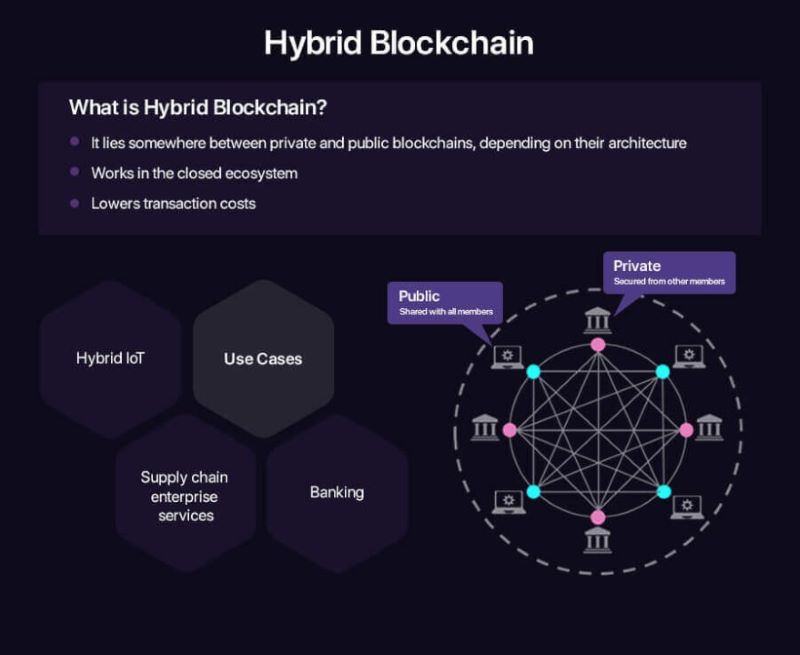
Advantages of Hybrid Blockchains
- Reduced Transaction Costs: Influential nodes streamline transaction verification, leading to lower transaction costs and quicker processing.
- Enhanced Security: Operating within a closed ecosystem, hybrid blockchains ensure the security of all information stored on the network, mitigating potential risks.
- Resilience Against Attacks: Hybrid blockchains fortify against attacks, safeguarding more than 50% of potential vulnerabilities and ensuring network integrity.
- Flexible Governance: Users have the flexibility to modify rules and protocols as needed, adapting to evolving requirements and circumstances.
- Confidentiality Preservation: Hybrid blockchains maintain project confidentiality while facilitating communication with external stakeholders, striking a balance between privacy and transparency.
Discover the power of blockchain with Solution of Blockchain.
Frequently Asked Questions
What is blockchain technology and how does it work?
Blockchain is “an open, distributed ledger that allows the transactions between two parties and generate a public key and a private key. The combination of these two keys further authenticates the transaction.
Blockchain stores all the data of the transaction done over its network and then, it authenticates every transaction whenever a new transaction is made. This way, it becomes the best blockchain platform.
What is blockchain good for?
Blockchain is an immutable ledger that allows transparent transactions and therefore, blockchain is mostly used for the financial sector.
What is blockchain technology used for?
Blockchain technology is based on a centralized platform that can be used for varied purposes. The most common use of blockchain technology is in digital currency transactions. But apart from that, it’s used to the transparent ledger for compiling data for various purposes.
In conclusion, the future of blockchain technology in 2024 holds immense promise and potential, with innovative advancements poised to revolutionize various industries. From the emergence of hybrid blockchains to the widespread adoption of interoperability solutions, the blockchain landscape is set to undergo significant transformations.
As we look ahead, it’s crucial for businesses and individuals alike to stay informed and embrace the opportunities presented by blockchain technology. Explore the cutting-edge solutions offered by blockchain to propel your endeavors forward. Discover the power of blockchain with Solution of Blockchain.


